- Home
- Judith McNaught
Whitney, My Love Page 2
Whitney, My Love Read online
Page 2
“Well, if you really wanted to impress Paul, you could try . . .”
Whitney clenched her hands in frustration. “I have tried to be like Elizabeth. I wear those disgusting ruffled dresses that make me feel like a pastel mountain, I’ve practiced going for hours without saying a word, and I’ve fluttered my eyelashes until my eyelids go limp.”
Emily bit her lip to hide her smile at Whitney’s unflattering description of Elizabeth Ashton’s demure mannerisms, then she sighed. “I’ll go and tell the others that you’ll be right out.”
Gasps of outrage and derisive sniggers greeted Whitney’s appearance on the lawn when she led the horse toward the spectators. “She’ll fall off,” one of the girls predicted, “if God doesn’t strike her dead first for wearing those britches.”
Ignoring the impulse to snap out a biting retort, Whitney raised her head in a gesture of haughty disdain, then stole a look at Paul. His handsome face was taut with disapproval as his gaze moved from her bare feet, up her trousered legs, to her face. Inwardly, Whitney faltered at his obvious displeasure, but she swung resolutely onto the back of the waiting horse.
The gelding moved into its practiced canter, and Whitney worked herself upward, first crouching with arms outstretched for balance, then slowly easing herself into a standing position. Around and around they went and, although Whitney was in constant terror of falling off and looking like a fool, she managed to appear competent and graceful.
As she completed the fourth circle, she let her eyes slant to the faces passing on her left, registering their looks of shock and derision, while she searched for the only face that mattered. Paul was partially in the tree’s shadow, and Elizabeth Ashton was clinging to his arm, but as Whitney passed, she saw the slow, reluctant smile tugging at the corner of his mouth, and triumph unfurled like a banner in her heart. By the time she came around again, Paul was grinning broadly at her. Whitney’s spirits soared, and suddenly all the weeks of practice, the sore muscles and bruises, seemed worthwhile.
* * *
At the window of the second floor drawing room overlooking the south lawn, Martin Stone stared down at his performing daughter. Behind him, the butler announced that Lord and Lady Gilbert had arrived. Too enraged at his daughter to speak, Martin greeted his sister-in-law and her husband with a clenched jaw and curt nod.
“How—how nice to see you again after so many years, Martin,” Lady Anne lied graciously. When he remained icily silent, she said, “Where is Whitney? We’re so anxious to see her.”
Martin finally recovered his voice. “See her?” he snapped savagely. “Madam, you have only to look out this window.”
Bewildered, Anne did as he said. Below on the lawn there stood a group of young people watching a slender boy balancing beautifully on a cantering horse. “What a clever young man,” she said, smiling.
Her simple remark seemed to drive Martin Stone from frozen rage to frenzied action as he swung on his heel and marched toward the door. “If you wish to meet your niece, come with me. Or, I can spare you the humiliation, and bring her here to you.”
With an exasperated look at Martin’s back, Anne tucked her hand in her husband’s arm and together they followed Martin downstairs and outside.
As they approached the group of young people, Anne heard murmurings and laughter, and she was vaguely aware that there was something malicious in the tone, but she was too busy scanning the young ladies’ faces, looking for Whitney, to pay much heed to the fleeting impression. She mentally discarded two blondes and a redhead, quizzically studied a petite, blue-eyed brunette, then glanced helplessly at the young man beside her. “Pardon me, I am Lady Gilbert, Whitney’s aunt. Could you tell me where she is?”
Paul Sevarin grinned at her, half in sympathy and half in amusement. “Your niece is on the horse, Lady Gilbert,” he said.
“On the—” Lord Gilbert choked.
From her delicate perch atop the horse, Whitney’s eyes followed her father’s progress as he bore down on her with long, rapid strides. “Please don’t make a scene, Father,” she implored when he was within earshot.
“I make a scene?” he roared furiously. Snatching the halter, he brought the cantering horse around so sharply that he jerked it from beneath her. Whitney hit the ground on her feet, lost her balance, and ended up half-sprawling. As she scampered up, her father caught her arm in a ruthless grip and hauled her over toward the spectators. “This—this thing,” he said, thrusting her forward toward her aunt and uncle, “I am mortified to tell you is your niece.”
Whitney heard the smattering of giggles as the group quickly disbanded, and she felt her face grow hot with shame. “How do you do, Aunt Gilbert? Uncle Gilbert?” With one eye on Paul’s broad-shouldered, retreating form, Whitney reached mechanically for her nonexistent skirt, realized it was missing, and executed a comical curtsy without it. She saw the frown on her aunt’s face and put her chin up defensively. “You may be sure that for the week you are here, I shall endeavor not to make a freak of myself again, Aunt.”
“For the week that we are here?” her aunt gasped, but Whitney was preoccupied watching Paul help Elizabeth into his curricle and didn’t notice the surprise in her aunt’s voice.
“Good-bye, Paul,” she called, waving madly. He turned and raised his arm in silent farewell.
Laughter drifted back as the curricles bowled down the drive, carrying their occupants off to a picnic or some other gay and wonderful activity, to which Whitney was never invited because she was too young.
Following Whitney toward the house, Anne was a mass of conflicting emotions. She was embarrassed for Whitney, furious with Martin Stone for humiliating the girl in front of the other young people, somewhat dazed by the sight of her own niece cavorting on the back of a horse, wearing men’s britches . . . and utterly astonished to discover that Whitney, whose mother had been only passably pretty, showed promise of becoming a genuine beauty.
She was too thin right now, but even in disgrace Whitney’s shoulders were straight, her walk naturally graceful and faintly provocative. Anne smiled to herself at the gently rounded hips displayed to almost immoral advantage by the coarse brown trousers, the slender waist that would require no subterfuge to make it appear smaller, eyes that seemed to change from sea-green to deep jade beneath their fringe of long, sooty lashes. And that hair—piles and piles of rich mahogany brown! All it needed was a good trimming and brushing until it shone; Anne’s fingers positively itched to go to work on it. Mentally she was already styling it in ways to highlight Whitney’s striking eyes and high cheekbones. Off her face, Anne decided, piled at the crown with tendrils at the ears, or pulled straight back off the forehead to fall in gentle waves down her back.
As soon as they entered the house, Whitney mumbled an excuse and fled to her room where she flopped dejectedly into a chair and morosely contemplated the humiliating scene Paul had just witnessed, with her father jerking her ignominiously off her horse and then shouting at her. No doubt her aunt and uncle were as horrified and revolted by her behavior as her father had been, and her cheeks burned with shame just thinking of how they must despise her already.
“Whitney?” Emily whispered, creeping into the bedroom and cautiously closing the door behind her. “I came up the back way. Is your father angry?”
“Cross as crabs,” Whitney confirmed, staring down at her trousered legs. “I suppose I ruined everything today, didn’t I? Everyone was laughing at me, and Paul heard them. Now that Elizabeth is seventeen, he’s bound to offer for her before he ever has a chance to realize that he loves me.”
“You?” Emily repeated dazedly. “Whitney Stone, Paul avoids you like the plague, and well you know it! And who could blame him, after the mishaps you’ve treated him to in the last year?”
“There haven’t been so many as all that,” Whitney protested, but she squirmed in her chair.
“No? What about that trick you played on him on All Soul’s—darting out in front of his carriage, shrieking
like a banshee, and pretending to be a ghost, terrifying his horses.”
Whitney flushed. “He wasn’t so very angry. And it isn’t as if the carriage was destroyed. It only broke a shaft when it overturned.”
“And Paul’s leg,” Emily pointed out.
“But that mended perfectly,” Whitney persisted, her mind already leaping from past debacles to future possibilities. She surged to her feet and began to pace slowly back and forth. “There has to be a way—but short of abducting him, I—” A mischievous smile lit up her dust-streaked face as she swung around so quickly that Emily pressed back into her chair. “Emily, one thing is infinitely clear: Paul does not yet know that he cares for me. Correct?”
“He doesn’t care a snap for you is more like it,” Emily replied warily.
“Therefore, it would be safe to say that he is unlikely to offer for me without some sort of added incentive. Correct?”
“You couldn’t make him offer for you at the point of a gun, and you know it. Besides, you aren’t old enough to be betrothed, even if—”
“Under what circumstances,” Whitney interrupted triumphantly, “is a gentleman obliged to offer for a lady?”
“I can’t think of any. Except of course, if he has compromised her—absolutely not! Whitney, whatever you’re planning now, I won’t help.”
Sighing, Whitney flopped back into her chair, stretching her legs out in front of her. An irreverent giggle escaped her as she considered the sheer audacity of her last idea. “If only I could have pulled it off . . . you know, loosened the wheel on Paul’s carriage so that it would fall off later, and then asked him to drive me somewhere. Then, by the time we walked back, or help arrived, it would be late at night, and he would have to offer for me.” Oblivious to Emily’s scandalized expression, Whitney continued, “Just think what a wonderful turnabout that would have been on a tired old theme: Young Lady abducts Gentleman and ruins his reputation so that she is forced to marry him to set things aright! What a novel that could have made,” she added, rather impressed with her own ingenuity.
“I’m leaving,” Emily said. She marched to the door, then she hesitated and turned back to Whitney. “Your aunt and uncle saw everything. What are you going to say to them about those trousers and the horse?”
Whitney’s face clouded. “I’m not going to say anything, it wouldn’t help—but for the rest of the time they are here, I’m going to be the most demure, refined, delicate female you’ve ever seen.” She saw Emily’s dubious look and added, “Also I intend to stay out of sight except at mealtimes. I think I’ll be able to act like Elizabeth for three hours a day.”
* * *
Whitney kept her promise. At dinner that night, after her uncle’s hair-raising tale of their life in Beirut where he was attached to the British Consulate, she murmured only, “How very informative, Uncle,” even though she was positively burning to ply him with questions. At the end of her aunt’s description of Paris and the thrill of its gay social life, Whitney murmured, “How very informative, Aunt.” The moment the meal was finished, she excused herself and vanished.
After three days, Whitney’s efforts to be either demure or absent had, in fact, been so successful that Anne was beginning to wonder whether she had only imagined the spark of fire she’d glimpsed the day of their arrival, or if the girl had some aversion to Edward and herself.
On the fourth day, when Whitney breakfasted before the rest of the household was up, and then vanished, Anne set out to discover the truth. She searched the house, but Whitney was not indoors. She was not in the garden, nor had she taken a horse from the stable, Anne was informed by a groom. Squinting into the sunlight, Anne looked around her, trying to imagine where a fifteen-year-old would go to spend all day.
Off on the crest of a hill overlooking the estate, she spied a patch of bright yellow. “There you are!” she breathed, opening her parasol and striking out across the lawn.
Whitney didn’t see her aunt coming until it was too late to escape. Wishing she had found a better place to hide, she tried to think of some innocuous subject on which she could converse without appearing ignorant. Clothes? Personally, she knew nothing of fashions and cared even less; she looked hopeless no matter what she wore. After all, what could clothes do to improve the looks of a female who had cat’s eyes, mud-colored hair, and freckles on the bridge of her nose? Besides that, she was too tall, too thin, and if the good Lord intended for her ever to have a bosom, it was very late in making its appearance.
Weak-kneed, her chest heaving with each labored breath, Anne topped the steep rise and collapsed unceremoniously onto the blanket beside Whitney. “I-I thought I’d take . . . a nice stroll,” Anne lied. When she caught her breath, she noticed the leather-bound book lying face down on the blanket and, seizing on books as a topic of conversation, she said, “Is that a romantic novel?”
“No, Aunt,” Whitney demurely uttered, carefully placing her hand over the title of the book to conceal it from her aunt’s eyes.
“I’m told most young ladies adore romantic novels,” Anne tried again.
“Yes, Aunt,” Whitney agreed politely.
“I read one once but I didn’t like it,” Anne remarked, her mind groping for some other topic that might draw Whitney into conversation. “I cannot abide a heroine who is too perfect, nor one who is forever swooning.”
Whitney was so astonished to discover that she wasn’t the only female in all of England who didn’t devour the insipid things, that she instantly forgot her resolution to speak only in monosyllables. “And when the heroines aren’t swooning,” she added, her entire face lighting up with laughter, “they are lying about with hartshorn bottles up their nostrils, moping and pining away for some faint-hearted gentleman who hasn’t the gumption to offer for them, or else has already offered for some other, unworthy female. I could never just lie there doing nothing, knowing the man I loved was falling in love with a horrid person.” Whitney darted a glance at her aunt to see if she was shocked, but her aunt was regarding her with an unexplainable smile lurking at the corners of her eyes. “Aunt Anne, could you actually care for a man who dropped to his knees and said, ‘Oh, Clarabel, your lips are the petals of a red rose and your eyes are two stars from the heavens’?” With a derisive snort, Whitney finished, “That is where I would have leapt for the hartshorn!”
“And so would I,” Anne said, laughing. “What do you read then, if not atrocious romantic novels?” She pried the book from beneath Whitney’s flattened hand and stared at the gold-embossed title. “The Iliad?” she asked in astonished disbelief. The breeze ruffled the pages, and Anne’s amazed gaze ricocheted from the print to Whitney’s tense face. “But this is in Greek! Surely you don’t read Greek?”
Whitney nodded, her face flushed with mortification. Now her aunt would think her a bluestocking—another black mark against her. “Also Latin, Italian, French, and even some German,” she confessed.
“Good God,” Anne breathed. “How did you ever learn all that?”
“Despite what Father thinks, Aunt Anne, I am only foolish, not stupid, and I plagued him to death until he allowed me tutors in languages and history.” Whitney fell silent, remembering how she’d once believed that if she applied herself to her studies, if she could become more like a son, her father might love her.
“You sound ashamed of your accomplishments, when you should be proud.”
Whitney gazed out at her home, nestled in the valley below. “I’m sure you know everyone thinks it’s a waste of time to educate a female in these things. And anyway, I haven’t a feminine accomplishment to my name. I can’t sew a stitch that doesn’t look as if it were done blindfolded, and when I sing, the dogs down at the stable begin to howl. Mr. Twittsworthy, our local music instructor, told my father that my playing of the pianoforte gives him hives. I can’t do a thing that girls ought to do, and what’s more, I particularly detest doing them.”
Whitney knew her aunt would now take her in complete dislike, just as
everyone else always did, but it was better this way because at least she could stop dreading the inevitable. She looked at Lady Anne, her green eyes wide and vulnerable. “I’m certain Papa has told you all about me. I’m a terrible disappointment to him. He wants me to be dainty and demure and quiet, like Elizabeth Ashton. I try to be, but I can’t seem to do it.”
Anne’s heart melted for the lovely, spirited, bewildered child her sister had borne. Laying her hand against Whitney’s cheek, she said tenderly, “Your father wants a daughter who is like a cameo—delicate, pale, and easily shaped. Instead, he has a daughter who is a diamond, full of sparkle and life, and he doesn’t know what to do with her. Instead of appreciating the value and rarity of his jewel—instead of polishing her a bit and then letting her shine—he persists in trying to shape her into a common cameo.”
Whitney was more inclined to think of herself as a chunk of coal, but rather than disillusion her aunt, she kept silent. After her aunt left, Whitney picked up her book, but soon her mind wandered from the printed page to dreamy thoughts of Paul.
That night when she came down to the dining room, the atmosphere in the room was strangely charged, and no one noticed her sauntering toward the table. “When do you plan to tell her she’s coming back to France with us, Martin?” her uncle demanded angrily. “Or is it your intention to wait until the day we leave and then just toss the child into the coach with us?”
The world tilted crazily, and for one horrible moment, Whitney thought she was going to be sick. She stopped, trying to steady her shaking limbs, and swallowed back the aching lump in her throat. “Am I going somewhere, Father?” she asked, trying to sound calm and indifferent.

 Miracles
Miracles Paradise
Paradise Every Breath You Take
Every Breath You Take Until You
Until You A Kingdom of Dreams
A Kingdom of Dreams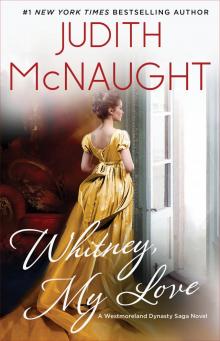 Whitney, My Love
Whitney, My Love Night Whispers
Night Whispers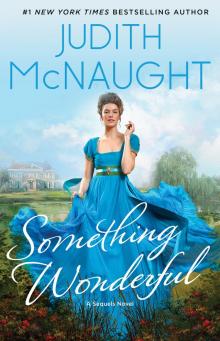 Something Wonderful
Something Wonderful Someone to Watch Over Me
Someone to Watch Over Me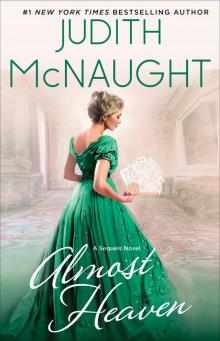 Almost Heaven
Almost Heaven Double Exposure: From a Gift of Love
Double Exposure: From a Gift of Love Tender Triumph
Tender Triumph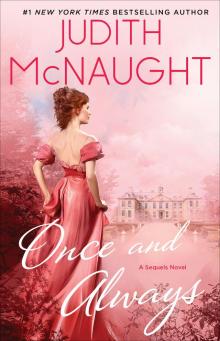 Once and Always
Once and Always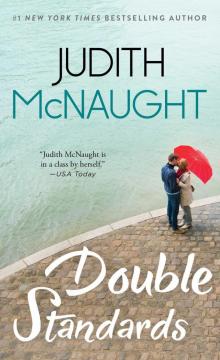 Double Standards
Double Standards